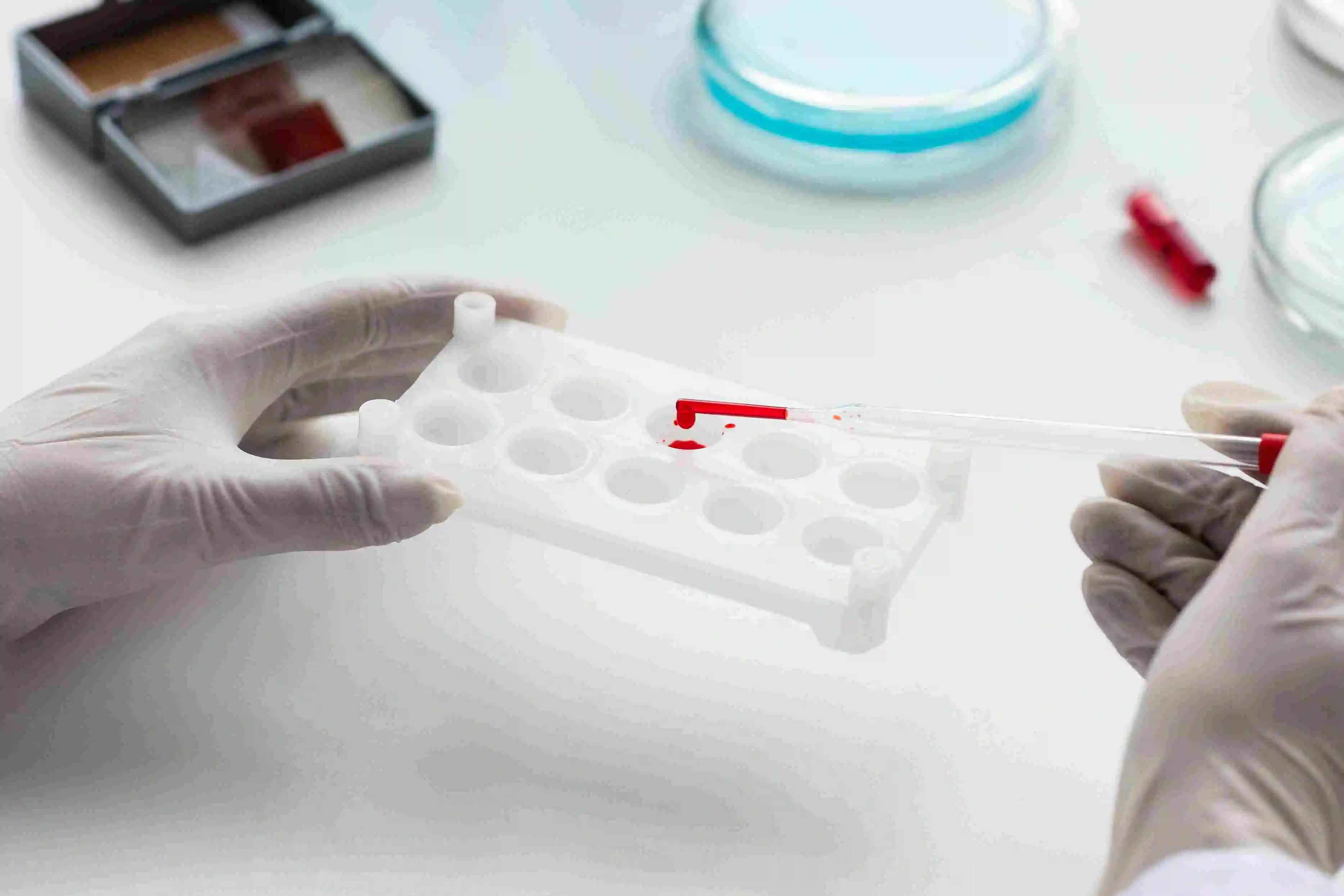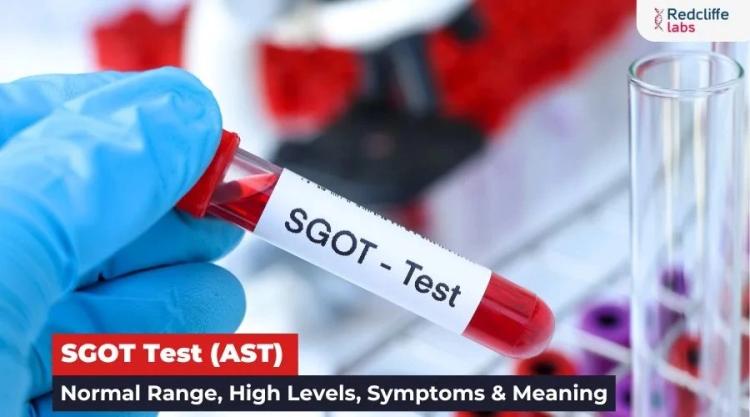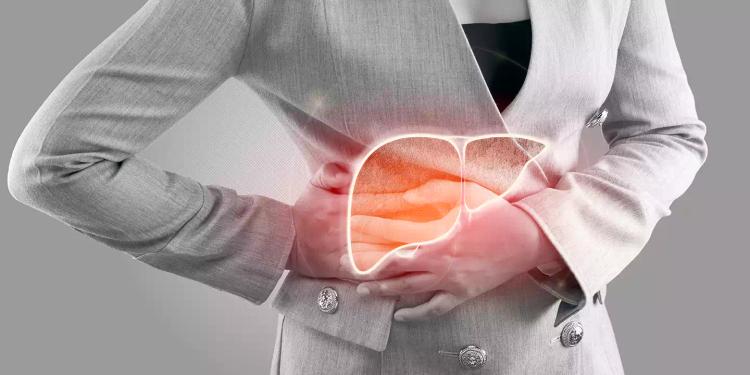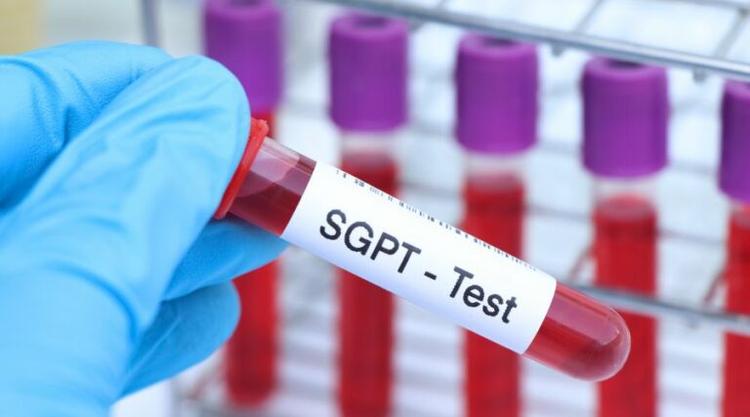High Bilirubin Levels (Hyperbilirubinemia): Symptoms, Causes, Tests, and Treatments

Medically Reviewed By
Dr Divya Rohra
Written By Ritish Sharma
on Mar 13, 2023
Last Edit Made By Ritish Sharma
on Jan 8, 2025

Have you ever heard of high bilirubin levels or hyperbilirubinemia? This medical condition occurs when there is an excessive amount of bilirubin, a yellowish substance, in the bloodstream. Bilirubin is a waste product formed when red blood cells break down, and it is normally processed by the liver and eliminated from the body through the stool.
When bilirubin levels are high, it can cause yellowing of the skin and eyes, a condition called jaundice. Hyperbilirubinemia can occur for various reasons, including liver disease, hemolytic anemia, and certain medications.
In this blog, we will explore the symptoms, causes, tests, and treatments associated with high bilirubin levels, so keep reading to learn more.
What is Bilirubin?
Bilirubin is a yellowish substance that is produced when red blood cells break down. It is a waste product that is normally processed by the liver and eliminated from the body through excretion.
When bilirubin levels are normal, it does not cause any harm to the body. However, when bilirubin levels are high, it can lead to jaundice, a condition in which the skin and whites of the eyes become yellow. Bilirubin levels are usually measured through blood tests and are an essential component of liver function tests.
The liver is responsible for processing bilirubin, and any issues with liver function can result in high bilirubin levels. Additionally, certain medications and medical conditions, such as hemolytic anemia, can also lead to hyperbilirubinemia.
Understanding the role of bilirubin in the body is crucial to identifying and treating any conditions that may result in high bilirubin levels.
High Bilirubin Level Symptoms
Here are some common symptoms associated with high bilirubin levels:
- Yellowing of the skin and whites of the eyes (jaundice)
- Dark urine
- Pale-colored stools
- Fatigue and weakness
- Bloating
- Abdominal pain and swelling
- Itching
- Nausea and vomiting
- Unintentional weight loss
What Causes High Bilirubin Levels?
Several factors can cause high bilirubin levels or hyperbilirubinemia. One of the most common causes include:
Liver Disease
The liver plays a crucial role in processing and eliminating bilirubin from the body. When the liver is damaged or diseased, it may not be able to efficiently process bilirubin, leading to an accumulation in the bloodstream.
Liver diseases that can cause high bilirubin levels to include hepatitis (inflammation of the liver), cirrhosis (scarring of the liver), and even liver cancer.
Hemolytic anemia
In hemolytic anemia, the body destroys red blood cells faster than it can produce them, resulting in an excess of bilirubin in the bloodstream. This occurs because red blood cells contain hemoglobin, a protein that is broken down into bilirubin when the cells are destroyed.
Hemolytic anemia can be caused by various factors, including genetic disorders, infections, medications, and autoimmune diseases.
Certain Medications
Some medications can cause high bilirubin levels as a side effect. For example, some antibiotics, such as rifampin and sulfonamides, can increase bilirubin levels by interfering with the liver's ability to process the substance.
Inherited conditions
Gilbert's syndrome is an inherited condition that affects the liver's ability to process bilirubin. People with this condition have a deficiency in an enzyme that helps to break down bilirubin, leading to mild and intermittent hyperbilirubinemia.
Newborn jaundice
High bilirubin levels are common in newborn babies due to the liver's immaturity. In the first few days of life, the liver may not be able to efficiently process bilirubin, leading to jaundice (yellowing of the skin and eyes).
This type of jaundice usually resolves on its own within a few days or weeks and does not cause any long-term harm.
Other factors
Other potential causes of hyperbilirubinemia include blockage of the bile ducts, certain infections (such as viral hepatitis), and autoimmune disorders (which can cause inflammation and damage to the liver).
Identifying the underlying cause of high bilirubin levels is important for determining the appropriate treatment and preventing any potential complications.
Bilirubin Blood Test
A bilirubin blood test is a common diagnostic test used to measure the levels of bilirubin in the blood, and whether they're in a normal range.
The blood test is typically recommended by a doctor to diagnose and monitor conditions that can cause high bilirubin levels, such as liver disease, hemolytic anemia, and certain infections.
The test involves taking a small sample of blood, usually from an in the arm, and analyzing it in a laboratory. Results of the test can help doctors determine the underlying cause of high bilirubin levels and develop an appropriate treatment plan.
Normal Bilirubin Level
Bilirubin levels typically range from 0.3 to 1.0 milligrams per deciliter (mg/dL). When bilirubin levels exceed 1.2 mg/dL, it is generally considered elevated.
Hyperbilirubinemia treatment
The treatment options for high bilirubin levels depend on the underlying cause and severity of the condition. Mild cases of hyperbilirubinemia may not require any treatment, as the body will often eliminate excess bilirubin on its own.
However, in more severe cases, treatment may be necessary to prevent complications. Here are some common treatment options for high bilirubin levels:
Phototherapy: This is a common treatment for newborns with jaundice.
Medications: In some cases, medications may be prescribed to help the liver eliminate excess bilirubin from the body.
Blood transfusion: In severe cases of hemolytic anemia, a blood transfusion may be necessary to replace the damaged red blood cells and reduce bilirubin levels.
Lifestyle changes: In some cases, making lifestyle changes such as reducing alcohol intake, quitting smoking, and eating a healthy diet may help improve liver function and reduce bilirubin levels.
It is essential to consult with a healthcare professional for a proper diagnosis such as a bilirubin blood test and treatment plan if you suspect you have high bilirubin levels. Early diagnosis and treatment can help prevent complications and promote a speedy recovery.
Takeaway
Timely diagnosis and treatment of high bilirubin levels are crucial to prevent further complications and promote a healthy liver. If you experience symptoms such as jaundice, dark urine, or pale stools, it is important to seek medical attention promptly.
Redcliffe Labs offers an affordable and reliable bilirubin total test that can help diagnose high bilirubin levels and determine appropriate treatment options.
Maintaining a balanced bilirubin level is essential for a healthy liver, and taking proactive steps to manage high bilirubin levels can improve overall health and well-being.
Leave a comment
10 Comments
Tanishka
Nov 24, 2024 at 1:09 PM.
My bilirubin level is 3.79 with 152sgpt and 151 sgot if SGPT and sgot level decrease is it possible that my bilirubin will also decrease????
Myhealth Team
Nov 25, 2024 at 10:31 AM.
Yes, lowering elevated SGPT and SGOT levels can help reduce bilirubin if liver health improves. Address the cause, maintain a healthy diet, and consult your doctor for proper treatment.
vishnu kumar
Nov 4, 2024 at 10:46 AM.
my indirect bilrubin 1 month ago -2.7 direct - 0.47 ,all reports normal but have symptoms like indigestion,voitting now indirect - 0.9 direct 1.02 mg/dl now no symptoms ,but why direct bilrubin increases
MyHealth Team
Nov 5, 2024 at 8:59 AM.
Hi Vishnu, An increase in direct bilirubin can occur due to temporary changes in liver function, bile duct issues, mild hemolysis, medications, or infections. Even if you’re feeling better and symptom-free now, these factors can still cause fluctuations in bilirubin levels. It’s a positive sign that your symptoms have resolved, but it’s advisable to follow up with your healthcare provider if your direct bilirubin remains elevated or if any new symptoms develop.
యన్ . శోభన్ బాబు
Oct 9, 2024 at 6:04 AM.
నాకు 3 months నుండి bilirubin 3.2 ఉంటున్నాది తగ్గేదేలా సలహ చెప్పండి
Myhealth Team
Oct 13, 2024 at 6:45 PM.
Bilirubin 3.2 mg/dL ఉన్నా, ఇది సాధారణ స్థాయిల కంటే ఎక్కువ. దాన్ని తగ్గించేందుకు, డాక్టర్ను సంప్రదించి ఆహారానికి సంబంధించిన కారణాలు తెలుసుకోవడం ముఖ్యమే. ఆరోగ్యకరమైన ఆహారం, ఉదాహరణకు పండ్లు, కూరగాయలు మరియు తక్కువ కొవ్వు ప్రోటీన్లు తీసుకోండి. రోజుకు ఎక్కువ నీళ్లు తాగడం కూడా సహాయపడుతుంది. ఆల్కహాల్ మరియు అధిక కొవ్వు కలిగిన ఆహారాలను నివారించండి.
GURUCHARAN Swain
Oct 5, 2024 at 7:18 AM.
My total bilurubin was 2.2 before 3 months .Now it's 1.6 will l be worried about this ? Or leave it thinking that it will gradually come down.
Ramakrishna
Sep 19, 2024 at 1:45 AM.
Totalbileubin5.2 direct bilirubin 0.2 what will happen
Myhealth Team
Sep 22, 2024 at 6:49 AM.
A total bilirubin level of 5.2 mg/dL is elevated, while a direct bilirubin level of 0.2 mg/dL is within the normal range. This suggests that the elevation is likely due to indirect bilirubin, which can occur in conditions like hemolysis or liver dysfunction. It’s important to consult your healthcare provider for further evaluation to determine the underlying cause. They may recommend additional tests to assess liver function and overall health. Monitoring and addressing any potential issues early on is crucial.
Reema
Sep 12, 2024 at 9:58 AM.
My husband age 45 has 18 bilirubin......what is the treat
MyHealth Team
Sep 17, 2024 at 7:00 AM.
A bilirubin level of 18 mg/dL is high and needs medical evaluation. Consult a doctor for a diagnosis and follow their treatment plan, which may include lifestyle changes and medications.
Felix Joseph c
Aug 26, 2024 at 4:14 PM.
Billirubin 1.6
MyHealth Team
Aug 27, 2024 at 2:23 PM.
A bilirubin level of 1.6 mg/dL is slightly elevated. It could indicate liver issues, bile duct problems, or hemolysis. It’s important to consult your doctor for a thorough evaluation to determine the cause and appropriate treatment.
Abdulla
Aug 22, 2024 at 1:48 AM.
എന്റെ മോനിക് 15വയസ്സുണ്ട്. ഒന്നര മാസം മുമ്പ് ഹെപറ്റീറ്റീസ് A വൈറസ് കണ്ടത്തയിരുന്നു. ആ സമയത്ത് ബിലിരുബിൻ 10. 11ആയിരുന്നു. Sgpt sgot 1500 മുകളിലായിരുന്നു. ഇപ്പോൾ എല്ലാം കുറഞ്ഞു. ബിലിരുബിൻ 1.3 ആയി കുറഞ്ഞിരുന്നു. Innale LFT ടെസ്റ്റ് ചെയ്തപ്പോൾ ബിലിരുബിൻ 2.1 കൂടിയിരിക്കുന്നു. ഇതു yenthu കൊണ്ടാണ് ഇങ്ങനെ കൂടുന്നത്.sgpt sgot 27 ആയി കുറഞ്ഞു.ultara sound സ്കാൻ chythu. ലിവർ contour size 15.4 ആണ്
MyHealth Team
Aug 22, 2024 at 5:34 AM.
നിങ്ങളുടെ മകന്റെ ബിലിരുബിൻ 1.3ൽ നിന്ന് 2.1 ആയി വർദ്ധിച്ചതിനെക്കുറിച്ച് കൂടുതൽ പരിശോധിക്കുക. SGPT, SGOT കുറയുന്നുണ്ടെങ്കിലും, വീണ്ടും ബിലിരുബിൻ വർദ്ധനവ് ശ്രദ്ധിക്കേണ്ടതാണ്. ലിവർ സ്റ്റാറ്റസ് നോക്കാൻ ഡോക്ടറുമായി സമ്പർക്കം പുലർത്തുക. ഉചിതമായ ചികിത്സാ മാർഗങ്ങൾ തേടുക.
NUWARINDA ALEXANDER
Jan 11, 2024 at 5:29 PM.
Took an overdose of cefixime of 400gms 2*1 for two consecutive days, my eyes turned yellow and my urine to dark , I sought for medical attention and my bilirubin direct >7.00 bilirubin total 9.79 higher than the maximum levels. Was recommended livolin and cholestyramine, which am taking.. will my levels of bilirubin be lower and back to normal.. your help and recommendations. I thank you
Myhealth Team
Jan 16, 2024 at 7:42 AM.
Seeked medical help for cefixime overdose, bilirubin high. Taking prescribed livolin and cholestyramine. Follow doctor's advice for monitoring and recovery.
Prakash Chandra Parida
May 12, 2023 at 4:59 PM.
ALT 18 ALP 20 indirect bilirubin 2.2 direct bilirubin 0.63 total 2.85...no symptom of jaundice. Age 21 years..ultrasound report fatty liver 1..what problem is this..
Myhealth Team
May 16, 2023 at 7:37 AM.
Hi Prakash Chandra Parida, Thankyou for the enquiry. Based on the information provided, it appears that you have a normal range of liver function test results, including ALT (18 U/L), ALP (20 U/L), indirect bilirubin (2.2 mg/dL), direct bilirubin (0.63 mg/dL), and total bilirubin (2.85 mg/dL). These results indicate that your liver enzymes and bilirubin levels are within the normal range, suggesting no significant liver dysfunction or jaundice. However, your ultrasound report indicates a fatty liver. Fatty liver, also known as hepatic steatosis, is a condition characterized by the accumulation of fat in the liver cells. You should consult to your doctor for further evaluation of this. Thankyou



